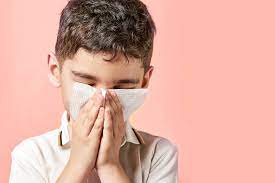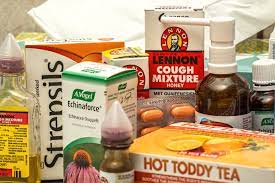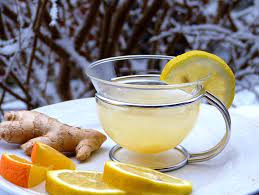Common Cold Remedies You Must Know!
4 minuteRead

By Samyati Mohanty
Although cold treatments are almost as widespread as colds themselves, are they effective? A cold is incurable. However, there are certain treatments that could help reduce your symptoms and stop you from feeling so awful. Here are various treatments for the common cold and what is known about them.
Cures for the common cold
You can anticipate being sick for one to two weeks if you get a cold. You are not required to be unhappy because of that. You could feel better if you tried these treatments:
- Remain hydrated. Dehydration should be avoided and congestion can be loosened with the aid of water, juice, clear broth, or warm lemon water with honey. Avoid drinking alcohol, coffee, and caffeinated sodas since these can exacerbate dehydration.
- Rest. To heal, your body requires sleep.
- Alleviate a sore throat. A warm, half glass of water with 1/4 to 1/2 teaspoon of salt in it can be gargled to temporarily soothe a scratchy or painful throat. It's unlikely that children under the age of six will be able to gargle effectively. Try ice chips, throat sprays, lozenges, or hard candies as well. Children can choke on hard candies or lozenges, so be careful when feeding them to them. Give youngsters under the age of six no hard sweets or lozenges.
- Fend off stuffiness. Saline nasal drops and sprays sold over-the-counter can help reduce stuffiness and congestion. Infants should have multiple saline drops placed in one nostril before being gently suctioned using a bulb syringe, according to specialists. In order to do this, squeeze the bulb, position the syringe tip gently in the nostril for approximately 6 to 12 millimetres (about 1/4 to 1/2 inch), and then gradually release the bulb. Older children may utilise saline nasal sprays.
- Alleviate pain: Give only acetaminophen to babies and toddlers less than six months. Give acetaminophen or ibuprofen to children older than 6 months. For the right dosage for your child's age and weight, consult your doctor.
- Acetaminophen (Tylenol, among others), ibuprofen (Advil, Motrin IB, among others), or aspirin can be taken by adults.
- When administering aspirin to kids or teenagers, exercise caution. Although aspirin is safe to use in children above the age of three, it should never be administered to children or teenagers who are experiencing the symptoms of chickenpox or the flu. This is due to the fact that aspirin has been connected to Reye's syndrome, an uncommon but potentially fatal illness, in these kids.
- Drink hot drinks. Ingesting warm liquids, such as chicken soup, tea, or warm apple juice, may be comforting and may alleviate congestion by boosting mucus movement. This is a common cold cure.
- Try honey. Adults and children over the age of one who have coughs may find relief from them with honey. Attempt it in hot tea.
- Increase the air's humidity. Adding moisture to your home with a cool-mist vaporizer or humidifier may help relieve congestion. Change the water every day, and clean the appliance as directed by the manufacturer.
- Consider using over-the-counter (OTC) cold and cough remedies. OTC decongestants, antihistamines, and painkillers may provide some symptom alleviation for adults and kids aged 5 and older. They do have certain adverse effects, though, and they won't stop or shorten a cold. Experts concur that younger children shouldn't be given them. These drugs can seriously harm you if you abuse them or use them excessively. Before giving your child any drugs, consult with their doctor.
- Only take drugs as prescribed. Read the labels of the cold medications you take to be sure you're not taking too much of any prescription. Some cold remedies have various substances, such as a decongestant and a pain reliever.
Cold treatments that might be ineffective
- There are numerous useless cold treatments. Antibiotics are among the more popular ones that don't function. These target bacteria, but they offer little protection from cold viruses. Do not use outdated medications that you have on hand or ask your doctor for antibiotics for a cold. You won't feel well any faster, and using antibiotics improperly contributes to the dangerous and expanding issue of antibiotic-resistant germs.
- young youngsters taking over-the-counter cold and flu drugs. Children who take over-the-counter cold and cough medicines run the risk of experiencing catastrophic, even fatal, adverse effects. Before giving your child any drugs, consult with their doctor.
Contradicting research on cold cures
Despite increasing research, certain common cold cures like vitamin C and echinacea are still up for debate among scientists. Here is an update on several popular complementary treatments:
- C vitamin. It seems that the average person won't typically benefit from taking vitamin C to avoid colds. However, some research indicates that ingesting vitamin C before to the onset of cold symptoms may reduce the duration of your symptoms. People who are frequently exposed to colds may benefit from vitamin C, such as children who attend group child care in the winter.
- Zinc. The length of a cold may be shortened by taking zinc supplements, according to numerous research. However, research on zinc and colds has shown conflicting findings. Some studies show that zinc lozenges or syrup reduce the length of a cold by about one day, especially when taken within 24 to 48 hours of the first signs and symptoms of a cold.
Zinc also has potentially harmful side effects. Talk to your doctor before considering the use of zinc to prevent or reduce the length of colds.
Self-care is important.
Even though they are typically not serious, colds can be miserable. The best thing you can do is take care of yourself, despite the temptation to try the newest cure. Rest, hydrate, and maintain moisture in the air around you. Keep in mind to frequently wash your hands.
Disclaimer: Before taking any medication, always check with your doctor first.
Write, Record and Answer! Consume Unlimited Content! All you need to do is sign in and its absolutely free!
Continue with one click!!By signing up, you agree to our Terms and Conditions and Privacy Policy.















